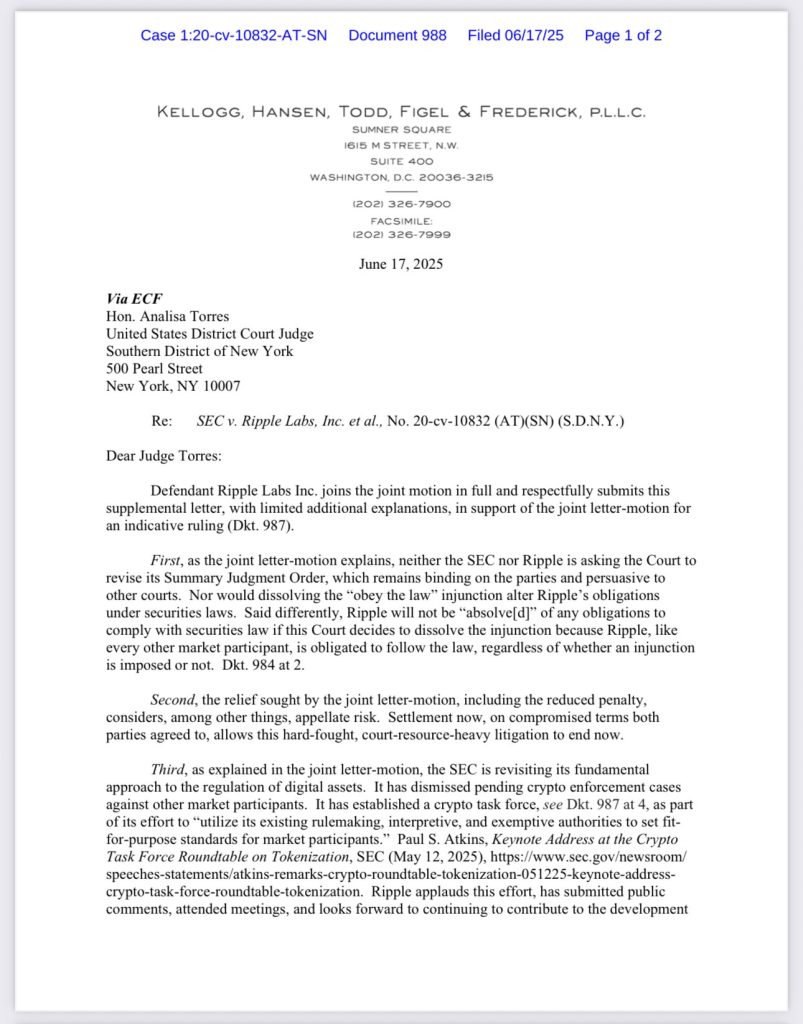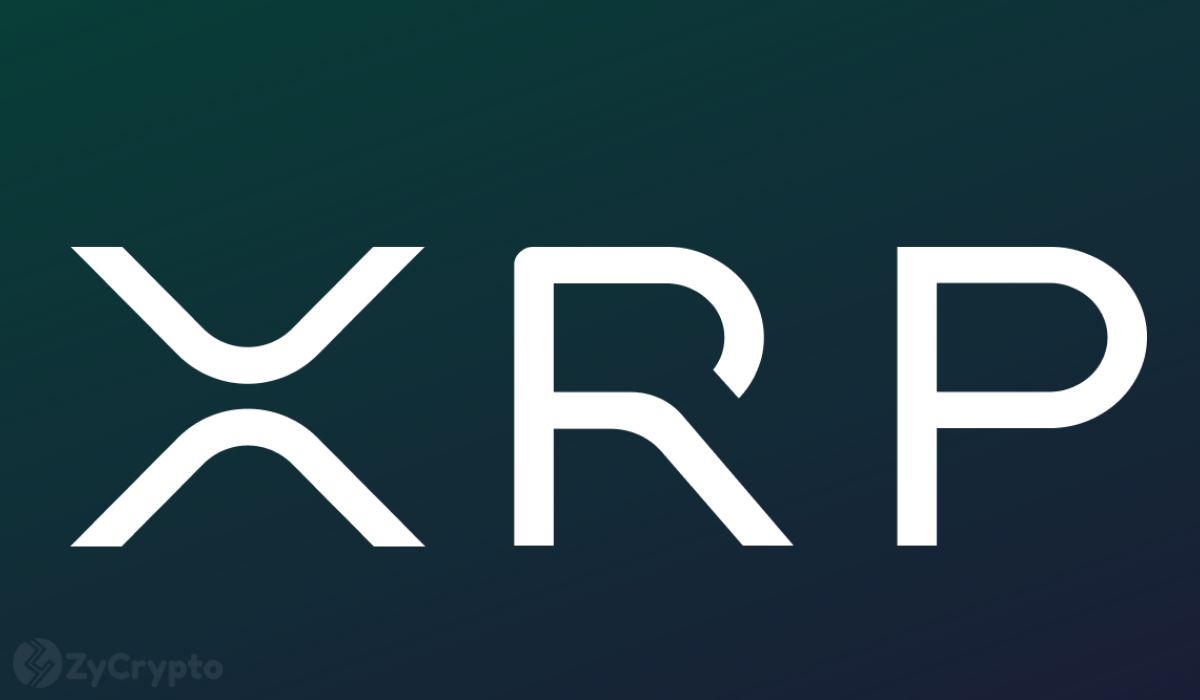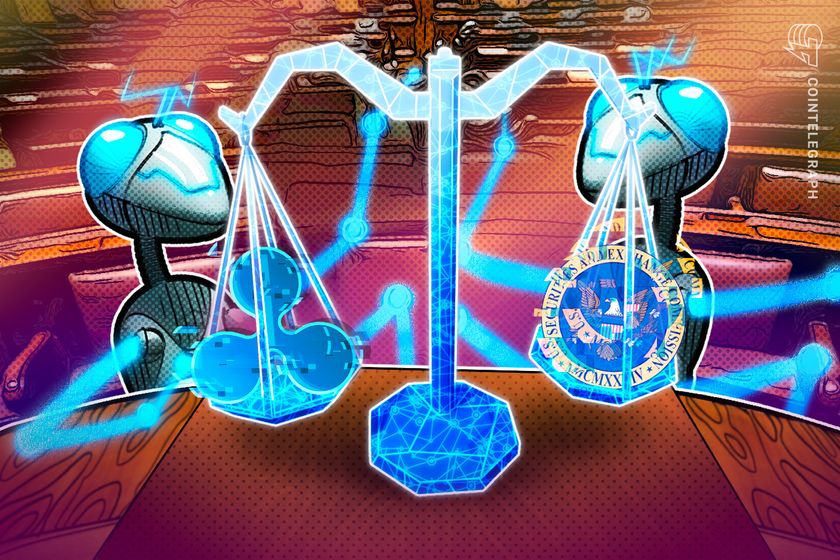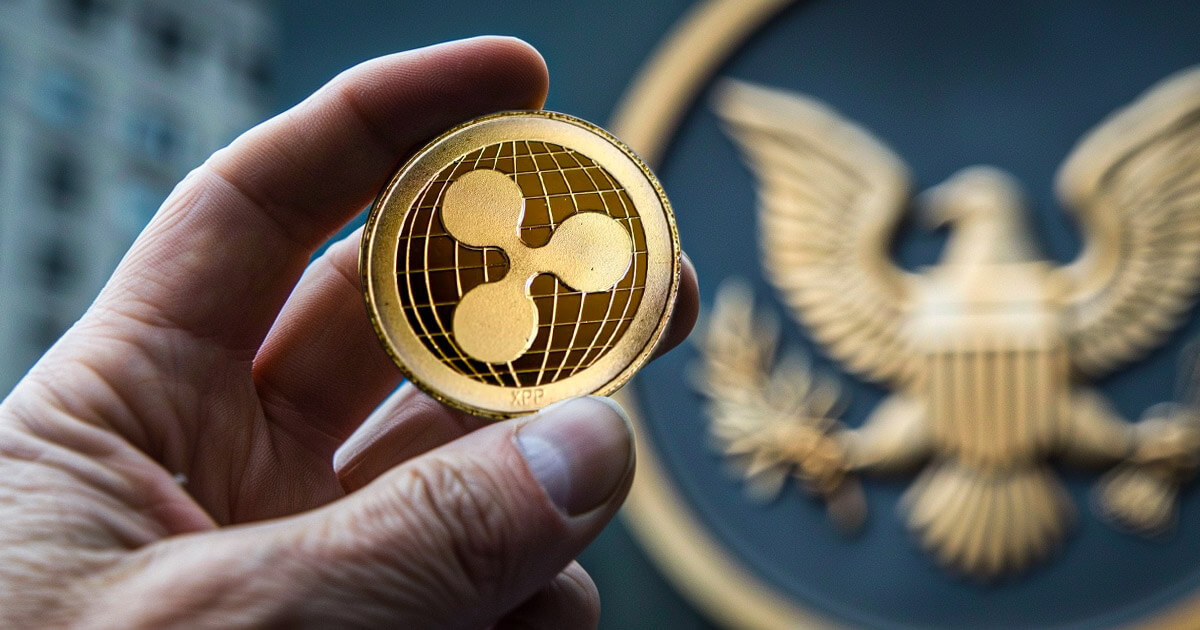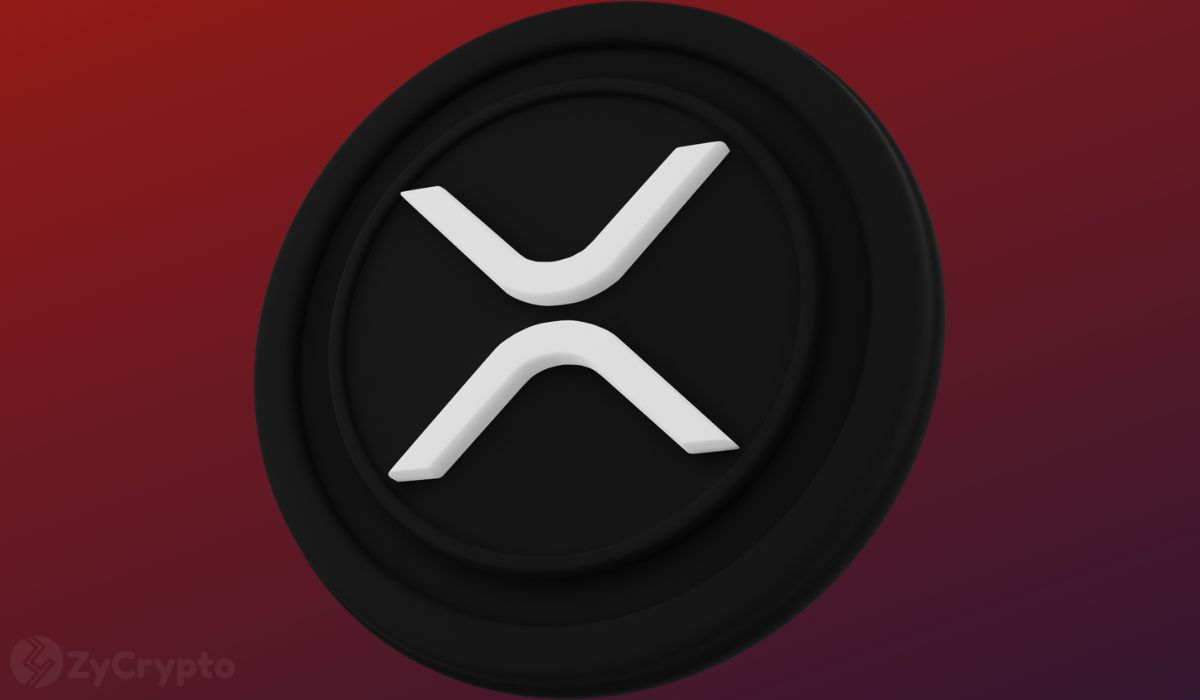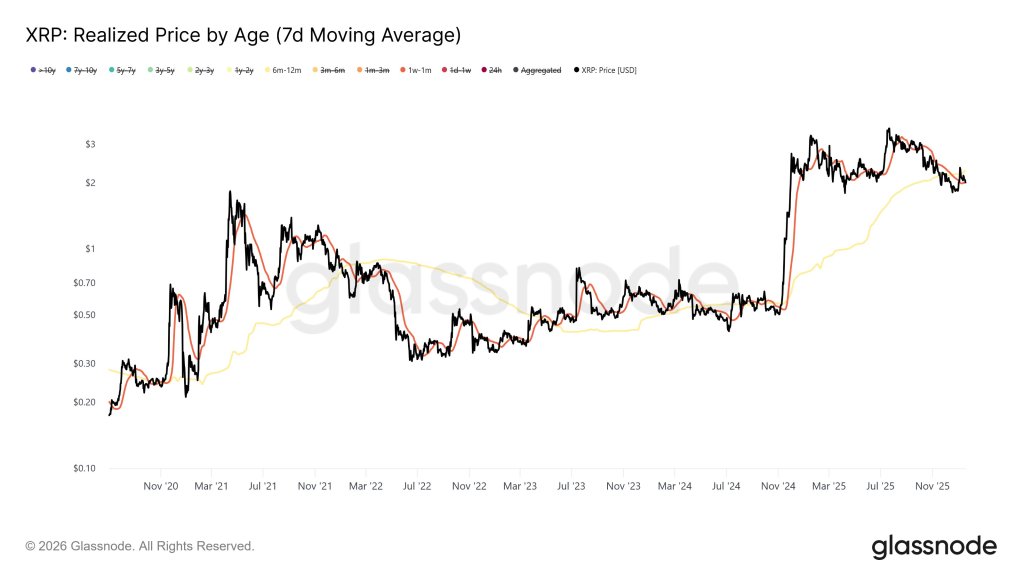2023-3-24 07:51 |
Ripple’s native cryptocurrency XRP is soaring amid anticipation that it will be victorious in a landmark securities case against the SEC. With the official ruling expected in just a matter of days, what could this mean for the crypto market?
The U.S. Securities and Exchange Commission (SEC) filed a lawsuit against Ripple Labs, Inc. and two of its executives in December 2020. It alleged that Ripple violated federal securities laws. The SEC claims that Ripple conducted an unregistered securities offering of $1.3 billion in XRP tokens beginning in 2013.
According to the SEC, XRP is classified as a security under the Howey test. This is a legal test used by the SEC to determine whether a transaction constitutes an investment contract. Ripple has fervently disputed the SEC’s allegations. It argues that XRP is not a security and that the SEC has overstepped its regulatory authority. The case is still ongoing, and its resolution could have wide-reaching impacts on the broader cryptocurrency industry.
The Journey Nears an EndNow it seems that Ripple’s long-lasting feud with the SEC could wrap up soon. Ripple and its CEO, Brad Garlinghouse, made their final submission to the court on Dec. 2.
Ripple’s native cryptocurrency XRP is soaring amid anticipation that the ruling will favor the fintech firm.
XRP Price Performance Source: BeInCryptoXPR is currently the sixth-largest cryptocurrency by market cap. It’s currently trading just shy of the $0.45 mark. It appears as though deep-pocketed investors have been buying up the supply, perhaps expecting a Ripple victory.
Over the past month, ~50 whales holding 10 million to 100 million $XRP have joined the #Ripple network.
These large investors have purchased around 420 million #XRP, worth $155.4 million, shows data from @santimentfeed. pic.twitter.com/6L3gBwbdiW
The extended lawsuit between the fintech firm and the regulatory watchdogs could directly affect the overall crypto market. If Ripple wins the case, which Garlinghouse expects to conclude by Q2 2023, it could change how the SEC regulates crypto.
A win for Ripple would also likely boost the price of other cryptocurrencies, particularly those similar to XRP.
Here are some potential outcomes and implications: XRP’s value could increase: If Ripple wins the case, it will clarify the legal status of XRP. This could lead to increased demand for the cryptocurrency and result in a rise in XRP’s value. Other cryptocurrencies could benefit: A Ripple victory could create a precedent for other cryptocurrencies facing regulatory uncertainty. It could lead to more clarity on the regulatory status of digital assets. This could boost investor confidence and encourage broader adoption. Increased regulatory clarity: The Ripple case could clarify the regulatory status of cryptocurrencies, which has been a primary source of uncertainty for the industry. If the court explains that XRP is not a security, it could guide other cryptocurrencies, potentially leading to a more favorable regulatory environment. Ripple’s business could grow: A victory for Ripple could provide a boost to its business, as it would be able to operate without the regulatory uncertainty that has plagued it for years. This could lead to increased adoption of its products, such as its cross-border payment solutions, and further growth for the company. Ripple’s reputation could improve: The lawsuit has damaged Ripple’s standing in the eyes of some investors and potential partners. A victory in the case could help restore some of that reputation, potentially leading to increased partnerships and investment in the company.In summary, a victory for Ripple in the SEC lawsuit could have significant implications for the broader crypto markets. Clarifying the regulatory status of digital assets would also likely boost investor confidence in cryptocurrencies.
If the Ripple Ruling Goes SouthThe ruling can also have negative consequences if Judge Analisa Torres decides in favor of the regulators. If so, it could mean that many other cryptocurrencies can also be classified as securities. Earlier this month, Ripple argued that a previous Supreme Court ruling added credence to its case and filed court papers saying so.
If cryptocurrencies were declared securities in the U.S., it would mean that they would be subject to the same regulatory requirements and oversight as traditional securities. This would have several implications.
Hurdles and Restrictions Legal requirements: Cryptocurrencies that are classified as securities would need to comply with the registration and disclosure requirements of the SEC. This means that the issuers of these cryptocurrencies would need to file registration statements with the SEC and provide investors with regular reports on their financial condition and operations. Trading restrictions: Cryptocurrencies deemed securities would be subject to trading restrictions under federal securities laws. For example, they could only be traded on registered securities exchanges, and individuals or entities that engage in trading activities would need to be registered with the SEC. Potential impacts on the crypto market: Declaring cryptocurrencies as securities could significantly impact the overall cryptocurrency market. It could lead to increased regulatory scrutiny, making it more difficult for cryptocurrencies to gain widespread acceptance and adoption. Impact on crypto investors: For investors, cryptocurrencies classified as securities would be subject to the same investor protection laws as traditional securities. This means they would be entitled to certain legal rights and protections. This includes the right to sue issuers for fraud or misrepresentation.Overall, cryptocurrencies declared as securities under the SEC would represent a significant shift in the regulatory landscape for cryptocurrencies. This could have a far-reaching impact on the industry.
However, the case’s outcome remains uncertain, and it is difficult to predict how it will impact the industry.
XRP Classification Comes Down to the Howey TestThe Howey Test is used in the United States to determine whether an asset is considered a security. It was established by the Supreme Court case SEC v. W.J. Howey Co. in 1946 and is used to determine whether an investment contract exists. An investment contract is defined as an investment of money in a common enterprise with the expectation of profits.
When it comes to cryptocurrencies, whether or not they pass the Howey Test is still a matter of debate. Some cryptocurrencies, such as Bitcoin, are often considered more like a commodity similar to gold and, therefore, not subject to securities laws. However, other cryptocurrencies, especially those that held initial coin offerings (ICOs), have been subject to SEC enforcement actions for failing the test.
The SEC has provided guidance stating that whether a particular cryptocurrency or token is a security will depend on the facts and circumstances of the offering, including the economic realities of the transaction. Some key factors that the SEC considers include whether the investors expect to profit from the efforts of others, whether there is a common enterprise, and whether there is a reasonable expectation of profits.
So does crypto pass the Howey Test? Well, it’s not so simple.
What’s the Confusion About?A cryptocurrency like Bitcoin doesn’t pass the Howey Test. While Bitcoin meets the test’s first prong, it doesn’t satisfy the second and third elements. This is because it’s not a joint enterprise and doesn’t rely on others to increase its value. Nonetheless, the latest SEC crackdown might prove otherwise.
While the Howey test has been widely used to determine the legal status of various types of investments, including cryptocurrencies and digital assets, there is an ongoing debate among legal experts and regulators about whether the test is still adequate in today’s rapidly evolving financial markets.
3/ But the Howey test is and remains one of the most confusing and misunderstood rules in all of the law. Countless hours of lawyer time, and untold sums of money, have been spent seeking to reveal its secrets.
— Lewis Cohen (@NYcryptolawyer) November 10, 2022Some argue that the Howey test needs to be narrower in its definition of a security and that new types of investments, such as tokens and other digital assets, may not fit neatly within its framework.
Speaking to BeInCrypto, Joseph Hall and Jai Massari, partners at legal firm David Polk, also contend that the Howey Test needs to be updated.
The pair opined:
“The Howey test, a single sentence in the Supreme Court’s opinion, was never imagined as a way to answer the questions we face today in regulating crypto markets, where many tokens represent no ownership of a business and no claim on the revenues, income or assets of an economic enterprise.”
Others contend that the test is sufficiently flexible to accommodate new investment models and that Congress or the SEC should make any changes to the test rather than the courts.
Need More ClarityWhether and how to revise the Howey test is a complex legal issue that requires consideration of various factors. These include investor protection, market innovation, and the evolving nature of financial transactions.
Ultimately, any changes to the test will likely depend on the actions of regulators, lawmakers, and the courts.
The post What a Ripple Victory in the Long-Running SEC Lawsuit Will Mean for Crypto Markets appeared first on BeInCrypto.
origin »Bitcoin price in Telegram @btc_price_every_hour
Ripple (XRP) на Currencies.ru
|
|
